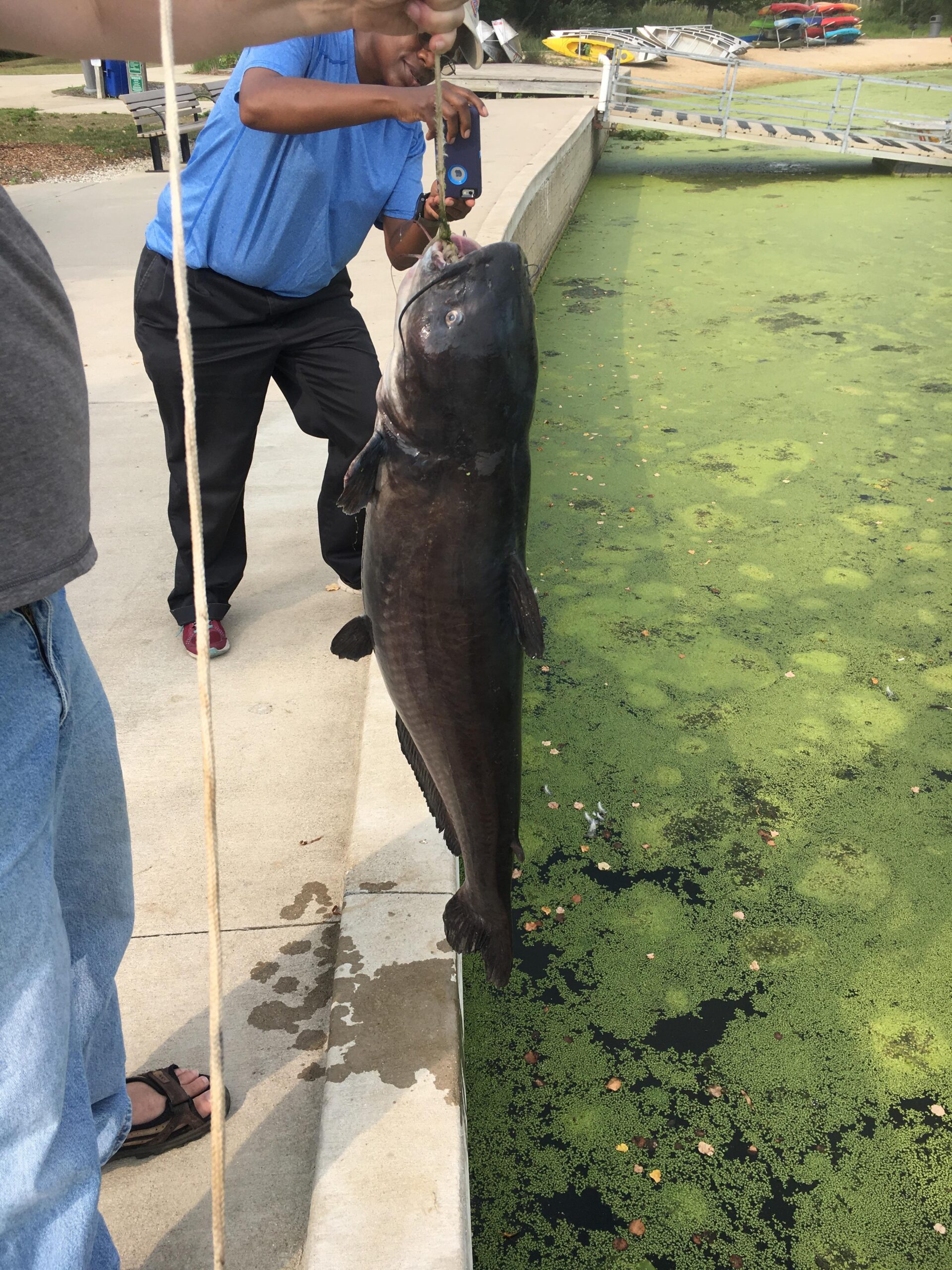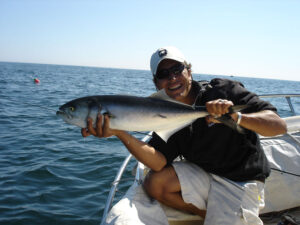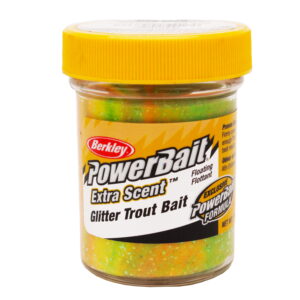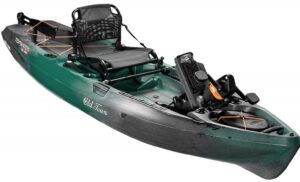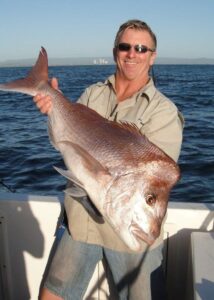When it comes to fishing in the United States, Illinois may not be the first state that comes to mind. However, this landlocked state is home to countless rivers and lakes that offer excellent fishing opportunities. In particular, river fishing in Illinois is a popular pastime for both locals and visitors alike.
Why Choose River Fishing in Illinois?
Illinois has a diverse range of rivers that cater to different fishing preferences. Whether you enjoy catching bass, trout, walleye, or catfish, there is a river in Illinois that will meet your needs. Additionally, river fishing provides a unique and exciting experience compared to fishing in lakes or ponds. The flowing water not only creates a picturesque environment but also attracts various fish species.
Best Rivers for Fishing in Illinois
1. Illinois River
The Illinois River is undoubtedly one of the most popular and productive fishing spots in the state. This river stretches for 273 miles, offering plenty of opportunities for anglers of all skill levels. The Illinois River is known for its diverse fish population, including largemouth and smallmouth bass, walleye, sauger, catfish, and more. The river is easily accessible from many towns and cities along its course, making it an ideal choice for a day trip or weekend getaway.
2. Fox River
The Fox River flows through northern Illinois, offering excellent fishing opportunities for both riverbank anglers and boaters. This river is known for its abundant smallmouth bass and northern pike populations. Additionally, you can also find catfish, walleye, and various panfish species in the Fox River. The water clarity of this river is generally good, making it easier to spot fish and enjoy a successful fishing trip.
3. Rock River
The Rock River is another popular destination for anglers seeking a mix of fishing opportunities. Stretching for over 300 miles, this river provides ample room for exploration. The Rock River is home to a variety of fish species, including largemouth and smallmouth bass, walleye, northern pike, muskie, catfish, and more. The river’s flow varies throughout its course, allowing for different fishing techniques and experiences.
4. Kankakee River
The Kankakee River is a hidden gem for river fishing enthusiasts. This scenic river offers excellent fishing opportunities for smallmouth bass, largemouth bass, walleye, northern pike, and catfish. The Kankakee River is known for its clear water, which adds to the overall fishing experience. Anglers can enjoy both wading and boating options along the river, making it suitable for different fishing preferences.
5. Mississippi River
Although not entirely within the borders of Illinois, the Mississippi River offers incredible fishing opportunities for those willing to venture out. The Illinois portion of the Mississippi River is known for its catfish population, including the famous channel catfish and flathead catfish. Anglers can also find bass, walleye, and various panfish species in this mighty river. Fishing on the Mississippi River may require a boat, but the rewards are well worth it.
Fishing Techniques for River Fishing in Illinois
Now that we have explored some of the best rivers for fishing in Illinois, let’s delve into some fishing techniques that can help you maximize your chances of success.
1. Casting and Retrieving
One of the most common techniques used in river fishing is casting and retrieving. This method involves casting your bait or lure upstream and retrieving it downstream, imitating the natural movement of prey. It is particularly effective for species like bass and trout. Experiment with different retrieval speeds and variations to entice the fish.
2. Bottom Bouncing
Bottom bouncing is a technique that involves allowing your bait or lure to bounce along the riverbed as you drift downstream. It is an effective technique for targeting bottom-dwelling species like catfish and walleye. Use a sinker to keep your bait close to the riverbed and maintain contact with the bottom as you drift.
3. Drift Fishing
Drift fishing is a versatile technique that can be used in both rivers and lakes. It involves allowing your bait or lure to drift naturally with the current, covering a larger area and increasing your chances of attracting fish. This technique is particularly effective for species that are more spread out, such as trout and muskie.
4. Fly Fishing
Fly fishing is a popular technique among anglers who enjoy the artistry and precision of the sport. It involves using a specialized fly rod, reel, and artificial flies to imitate insects or other small prey. Fly fishing is particularly effective for trout and smallmouth bass, which are abundant in many Illinois rivers.
5. Jug Fishing
Jug fishing is a unique and fun technique often used for catfish. It involves attaching baited lines to floating jugs and releasing them into the river. The jugs will float along with the current, and when a fish bites, the jug will tip or move, indicating a catch. Jug fishing can be a great way to relax and enjoy the river while waiting for a bite.
Tips for Successful River Fishing in Illinois
Now that you are familiar with some popular fishing techniques, let’s explore a few tips and tricks to help you become a more successful river angler in Illinois.
1. Research and Plan
Before heading out to the river, take some time to research the specific species you are targeting and the best fishing spots for them. Look for information on water conditions, preferred baits or lures, and any specific rules or regulations in place. Planning your fishing trip in advance will increase your chances of success.
2. Use Local Knowledge
If you are new to river fishing in Illinois, consider hiring a local guide or talking to experienced anglers in the area. They can provide valuable insights into the best fishing spots, techniques, and even the best time of day to fish. Local knowledge can make a significant difference in your fishing experience.
3. Observe the Water
When you arrive at the river, take some time to observe the water and its surroundings. Look for signs of fish activity, such as jumping or feeding fish. Pay attention to any structures like fallen trees or rocks that may provide cover for fish. By understanding the river’s dynamics, you can better position yourself to catch fish.
4. Adapt to the Conditions
River conditions can change rapidly, affecting fish behavior and feeding patterns. Be prepared to adapt your fishing techniques accordingly. If the water is murky, try using lures or baits with more vibration or scent to attract fish. Similarly, if the water is clear, opt for more natural-looking presentations.
5. Practice Catch and Release
As responsible anglers, it is essential to practice catch and release whenever possible. This helps maintain the fish populations and ensures future generations can enjoy the same fishing opportunities. Familiarize yourself with the fishing regulations in Illinois, including size limits and bag limits, and always handle fish with care to minimize stress and injury.
FAQs About River Fishing in Illinois
1. Do I need a fishing license to fish in Illinois rivers?
Yes, anyone aged 16 or older must have a valid fishing license to fish in Illinois rivers. You can purchase a fishing license online or from authorized vendors throughout the state.
2. What is the best time of year to go river fishing in Illinois?
The best time to go river fishing in Illinois depends on the species you are targeting. Generally, spring and fall are considered prime fishing seasons, as fish are more active and feeding before and after the colder winter months. However, different species may have specific spawning or feeding patterns that influence the best time to fish for them.
3. Can I fish from the riverbank, or do I need a boat?
You can fish from the riverbank in many Illinois rivers, especially in areas with public access points or designated fishing spots. However, having a boat allows you to access a wider range of fishing locations and explore different sections of the river.
4. What are some essential items to bring for a river fishing trip?
Some essential items to bring for a river fishing trip in Illinois include fishing rods and reels, a variety of lures or baits, fishing line, hooks, sinkers, a landing net, a cooler to keep your catch fresh, sunscreen, insect repellent, and plenty of water and snacks. It is also a good idea to pack a first aid kit and check the weather forecast before heading out.
5. Are there any fishing restrictions or regulations for Illinois rivers?
Yes, there are specific fishing regulations and restrictions in place for Illinois rivers. These may include size limits, bag limits, and seasonal closures for certain species. It is important to familiarize yourself with the fishing regulations in the area you plan to fish and adhere to them to protect the fish populations and the overall ecosystem.
Conclusion
River fishingIllinois offers a wealth of opportunities for anglers to enjoy the sport of river fishing. With its diverse rivers and abundant fish populations, Illinois provides a fantastic backdrop for a memorable fishing experience. Whether you’re a seasoned angler or a novice looking to try your hand at fishing, the rivers of Illinois have something to offer for everyone.
From the Illinois River to the Fox River, the Rock River to the Kankakee River, and even venturing out to the Mississippi River, each waterway presents its own unique fishing opportunities. The Illinois River is known for its diverse fish population, including bass, walleye, sauger, and catfish. The Fox River offers excellent smallmouth bass and northern pike fishing. The Rock River is a popular destination for bass, walleye, muskie, and catfish. The Kankakee River is a hidden gem, offering clear water and a variety of fish species. And for those willing to venture out, the Mississippi River provides incredible catfish fishing.
To make the most of your river fishing adventures in Illinois, it’s important to utilize effective fishing techniques. Casting and retrieving is a popular technique that imitates the movement of prey and is particularly effective for species like bass and trout. Bottom bouncing allows you to target bottom-dwelling species like catfish and walleye. Drift fishing is a versatile technique that covers a larger area and is great for species like trout and muskie. Fly fishing offers an artful approach and is particularly effective for trout and smallmouth bass. And for a unique and fun experience, jug fishing for catfish can provide a relaxing day on the river.
When planning your river fishing trip, it’s essential to research and plan ahead. Understanding the specific species you’re targeting, the best fishing spots, and any regulations in place will increase your chances of success. Local knowledge can also be invaluable, so consider hiring a guide or talking to experienced anglers in the area. Observing the water and adapting to the conditions will help you position yourself for a successful catch. And always remember to practice catch and release to preserve fish populations for future generations.
In conclusion, river fishing in Illinois offers a fantastic opportunity to enjoy the sport in a picturesque and diverse environment. With its numerous rivers and abundance of fish species, Illinois provides ample fishing opportunities for anglers of all levels. By utilizing effective fishing techniques, planning ahead, and respecting the rules and regulations, you can have a memorable and successful river fishing experience in Illinois.
FAQs About River Fishing in Illinois
1. Do I need a fishing license to fish in Illinois rivers?
Yes, anyone aged 16 or older must have a valid fishing license to fish in Illinois rivers. You can purchase a fishing license online or from authorized vendors throughout the state.
2. What is the best time of year to go river fishing in Illinois?
The best time to go river fishing in Illinois depends on the species you are targeting. Generally, spring and fall are considered prime fishing seasons, as fish are more active and feeding before and after the colder winter months. However, different species may have specific spawning or feeding patterns that influence the best time to fish for them.
3. Can I fish from the riverbank, or do I need a boat?
You can fish from the riverbank in many Illinois rivers, especially in areas with public access points or designated fishing spots. However, having a boat allows you to access a wider range of fishing locations and explore different sections of the river.
4. What are some essential items to bring for a river fishing trip?
Some essential items to bring for a river fishing trip in Illinois include fishing rods and reels, a variety of lures or baits, fishing line, hooks, sinkers, a landing net, a cooler to keep your catch fresh, sunscreen, insect repellent, and plenty of water and snacks. It is also a good idea to pack a first aid kit and check the weather forecast before heading out.
5. Are there any fishing restrictions or regulations for Illinois rivers?
Yes, there are specific fishing regulations and restrictions in place for Illinois rivers. These may include size limits, bag limits, and seasonal closures for certain species. It is important to familiarize yourself with the fishing regulations in the area you plan to fish and adhere to them to protect the fish populations and the overall ecosystem.
Summary
River fishing in Illinois offers a diverse and exciting experience for anglers. With its array of rivers and abundant fish populations, Illinois provides ample opportunities for fishing enthusiasts. The Illinois River, Fox River, Rock River, Kankakee River, and even the Mississippi River offer unique fishing experiences and a variety of species to target.
By utilizing effective fishing techniques such as casting and retrieving, bottom bouncing, drift fishing, fly fishing, and even jug fishing, anglers can increase their chances of a successful catch. Proper planning and research, as well as utilizing local knowledge, will further enhance the fishing experience in Illinois.
It is important to respect fishing regulations, practice catch and release, and take care of the environment to preserve the fish populations and ensure future generations can enjoy this fantastic sport. So grab your fishing gear, head to the rivers of Illinois, and prepare for an unforgettable river fishing adventure.

